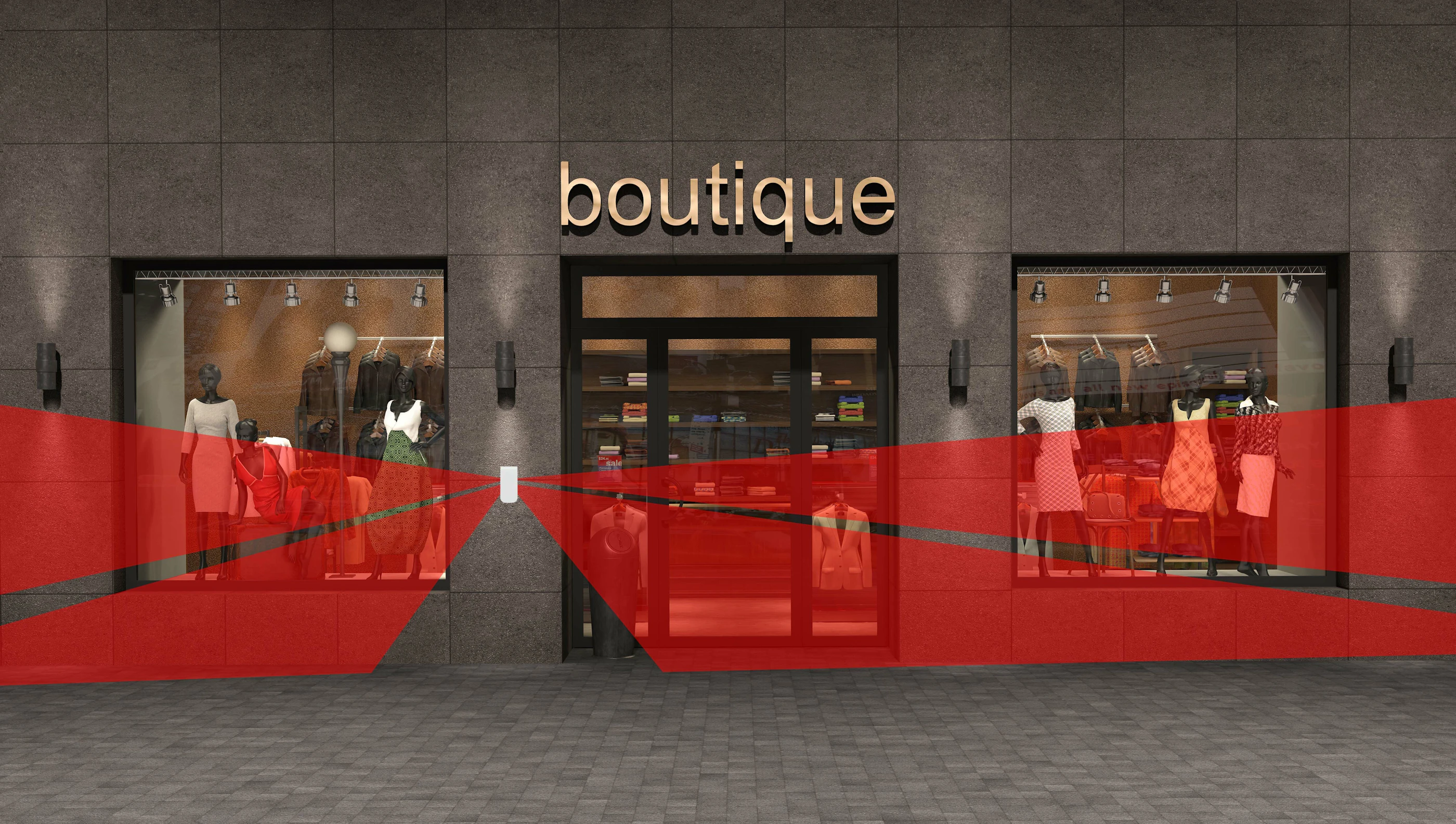
Detection solutions to keep retail safe - securing shopping with smart detection
Retail crime is on the rise. In its latest annual crime survey, The British Retail Consortium highlighted the total cost of retail crime rose to over £1 billion in 2021/22, with over eight million incidents of theft,. In Italy, according to a report by Laboratorio per la Sicurezza, retail theft and losses represented 4.6 million Euro in 2022. While the European Alliance for Safe Retail (EARS) found that the cost of retail crime in the European Union increased by 13% in 2022, to €16.6 billion, the highest figure since the study began in 2015. For all retailers, no matter the shape or size, finding the right solution and systems to secure their property, people and assets can be a real challenge.
Preventing unauthorised intrusions
Each retail store has its own individual requirements and challenges that need to be carefully considered, but one common security goal for every commercial premises is to prevent unauthorised intrusion. Preventing an intrusion requires a proactive approach with reliable detection that starts outside of the building that can alert of a potential intrusion before it happens.
For retail establishments situated in public areas, protecting the building and store façade is critical to detect any potential break-ins through window displays, doors and ceilings. Curtain sensors offer an optimal solution by specifically detecting people in close proximity to the building. These sensors can customise the detection range protecting whole facades or balconies, and are unaffected by changing light conditions, ensuring precise intrusion detection even in poorly illuminated areas, a common scenario in many retail outlets. Resilient against false alarms triggered by weather or small animals, curtain sensors can be seamlessly integrated with existing or new intrusion alarm/CCTV systems, to trigger lights or audio alerts and providing an additional security layer.
During operational hours, it is essential to monitor exit and fire doors to prevent unauthorised access. Here, a short-range curtain sensor proves effective in achieving this goal.

In more remote locations and where there is a larger space surrounding a store, for instance where there is a private car park, 90-degree or panoramic 180-degree detectors can cover the surroundings and reliably alert of anyone approaching the store out of hours, which can then be verified via surveillance cameras. Sensors with VCA provide extremely reliable outdoor security as any detection must be validated by both sensing detection and video analytics, this brings false alarms to the minimum ensuring security staff only get alerted of genuine intrusion attempts.

For larger sites or out-of-town shopping malls, perimeter protection is especially important, with remote monitoring to detect and prevent vandalism and theft. Solutions such as IR beams can provide an extra layer of security on top of any physical fence, by creating a virtual wall which will alert of anyone trying to jump over or trespassing into private property, triggering cameras, lights or audio alerts.
Fast and reliable alerts
In-store security is equally crucial to detect quickly and reliably of any unauthorised intrusions while the store is closed or to alert of anyone entering a restricted area. Our recently launched FlipX indoor sensor series, is equipped with an innovative pyroelectric element and a rotatable lens to simply change from wide-area to narrow-area coverage, allowing to customise the detection area, whether to protect wide open spaces, or large, narrow aisles in a supermarket.
LiDAR protection for high-value retail
LiDAR technology is currently used in a multitude of applications, one of the main ones being intrusion detection. Compared to other technologies, 2D LiDAR offers high accuracy and high-speed detection and allows to create independent customised detection areas, making it an ideal solution for retail environments. Our 2D LiDAR solutions have been installed in thousands of high-end retail stores, in both indoor and outdoor applications. The sensors can be seamlessly integrated with wider retail security systems, such as CCTV or surveillance systems that can be used to help identify intruders.
Electronic, jewellery and luxury stores are a common target for theft due to the high-value goods on display. Protecting the most common entry points is not enough. For example, a recent theft at a Mediamarkt store in Belgium saw thousands of euros worth of electronics taken. Despite the theft being captured on camera, it didn’t stop the theft of the equipment.

REDSCAN LiDAR sensors provide a discrete security solution which doesn’t affect the in-store experience, yet it can be used to proactively secure jewellery displays, narrow passages between the front window and roller shutters, skylights and more. Unlike cameras, LiDAR technology does not depend on an external light source, meaning detection is not affected by darkness or if it is exposed to bright sunlight. LiDAR also fully complies with GDPR privacy regulations, as it doesn’t collect any personal information, hence making it an ideal solution for place next to public facing areas and where surveillance cameras can’t be used.

